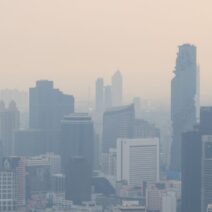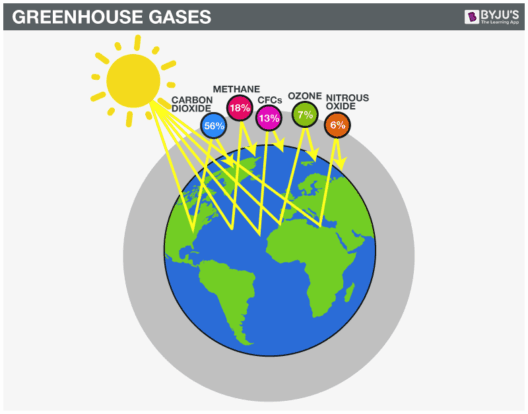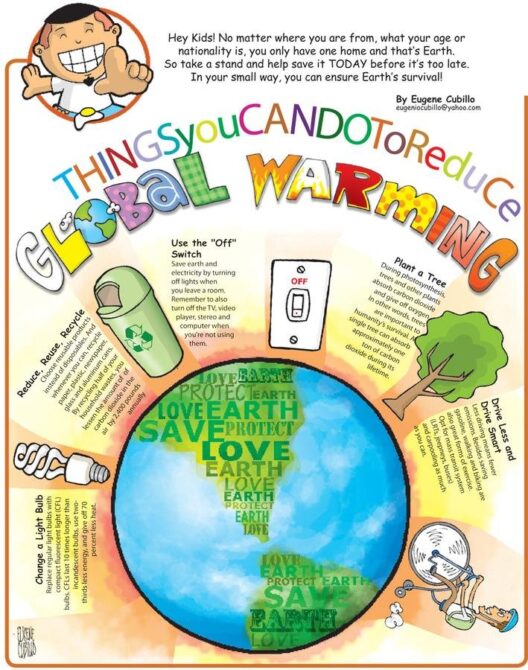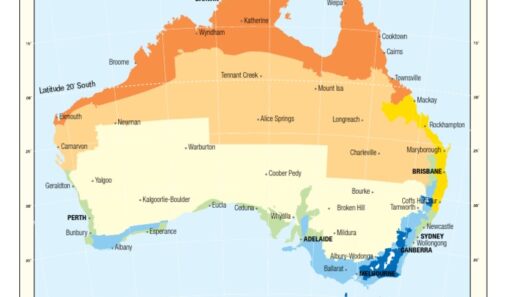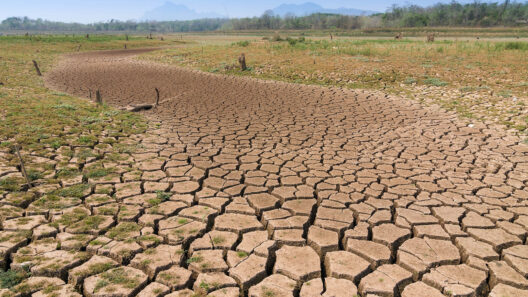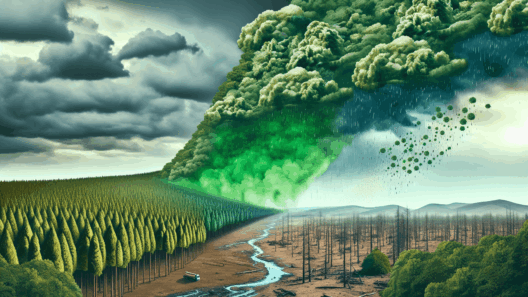As we navigate the complexities of modern existence, we might ask ourselves: what if our planet transformed before our very eyes? What if the shifting specter of climate change disrupted not just our environments, but also our daily lives? It is a reality that we, as stewards of this Earth, must confront and prepare for. The implications of climate change are sweeping, affecting everything from weather patterns to economic stability, and it is our responsibility to understand and mitigate its far-reaching impacts.
The predicament of climate change embodies a challenge that extends across continents and generations. To truly comprehend the magnitude of this phenomenon, we must delve into the multifaceted ways in which it rewrites the script of our world. Let us explore how climate change poses a threat to ecosystems, economies, and social frameworks, while also investigating ways in which we can prepare for the looming changes ahead.
Envisioning a Warming World: Ecological Disturbances on the Rise
The natural world operates through an intricate web of interconnections, and climate change alters these connections in unpredictable and alarming ways. One of the most profound impacts is the shift in biodiversity. Rising temperatures and extreme weather events create a tumultuous environment for flora and fauna. Species that once thrived in specific habitats may now find themselves endangered, or worse, extinct. This loss of biodiversity not only impoverishes our natural landscapes but also threatens the resilience of ecosystems that provide fundamental services, such as clean air, water filtration, and pollination.
Consider the coral reefs, those vibrant underwater cities that house a quarter of marine life. As ocean temperatures rise and pH levels drop due to increased carbon dioxide absorption, coral bleaching events become more frequent. This phenomenon strips the coral of its color and makes it vulnerable to disease, signaling a potential cascading effect on the entire marine ecosystem and the communities that depend on it for sustenance and livelihood.
Nature’s calendar, too, has shifted. Many species rely on specific environmental cues for breeding and migration. Changes in temperature and seasonal patterns disrupt these cycles, leading to mismatches in predator-prey relationships, which can have dire consequences for food chains. As unsettling as it may seem, the question lingers: what does a world devoid of certain species look like and how do we prepare for such a future?
Economic Turbulence: The Financial Cost of Inaction
The financial implications of climate change are as daunting as its environmental impacts. As we brace for increasingly frequent and intense weather events—hurricanes, floods, droughts—the economic burden becomes palpable. Infrastructure, agriculture, and healthcare systems face mounting challenges, prompting a shift in how economies operate. Communities that rely heavily on agriculture, for instance, are witnessing firsthand the devastation wrought by unpredictable weather patterns. Crop yields fluctuate dramatically, jeopardizing food security and prompting a rise in prices. For many families, the prospect of food shortages becomes a tangible concern.
Insurance firms grapple with rising claims as natural disasters wreak havoc on homes and businesses. The costs associated with recovery efforts escalate, leading to increased premiums that burden taxpayers and local governments alike. This economic volatility fosters a climate of uncertainty where investments falter, and industries re-evaluate their sustainability practices. The potential for job loss in vulnerable sectors further amplifies socio-economic disparities, beckoning the question: can we afford to ignore the consequences of our warming world?
Social Impacts: Climate Justice and Equitable Solutions
No discussion on climate change would be complete without acknowledging its human dimension. The social ramifications can be insidious and far-reaching. Communities with limited resources often bear the brunt of climate impacts. Those living in marginalized areas may find it more difficult to recover from natural disasters, leading to social inequities and exacerbated poverty levels. The plight of climate refugees—individuals forced to migrate due to environmental degradation—raises significant moral questions about the responsibilities of wealthier nations to support those who are disproportionately affected.
Climate change is not merely an environmental issue; it intersects with human rights, social justice, and economic equity. Advocating for policies that ensure fair distribution of resources, investment in renewable energy, and robust disaster preparedness is essential for creating sustainable solutions. The dialogue surrounding these issues must be inclusive, recognizing that collective action is paramount in addressing the crisis. What will we, as a global community, choose to do to uplift those impacted by climate change?
Preparing for Impact: A Path Forward
As daunting as the realities of climate change may seem, proactive measures can be undertaken to mitigate its effects and build resilience within our communities. Individuals can engage in conscientious consumption, advocating for sustainable practices in daily life. Utilizing public transportation, reducing energy consumption, and supporting local, sustainable businesses can contribute to a collective effort to diminish our carbon footprint.
On a macro level, governments should prioritize investments in green infrastructure, renewable energy sources, and robust disaster preparedness plans. Implementing policies to support vulnerable populations can create pathways toward social equity, ensuring that the voices of those most affected are not overlooked. Education and awareness can catalyze a broader movement toward sustainable practices, turning concern into action.
In conclusion, the challenge posed by climate change is formidable, yet it invigorates a call to action that is undeniable. Together, we must confront the complexities of this crisis and prepare for the multifarious impacts it heralds. In doing so, we honor not only our planet but also one another, committing ourselves to a sustainable future that could redefine human existence. How prepared are you to be a part of the solution?


